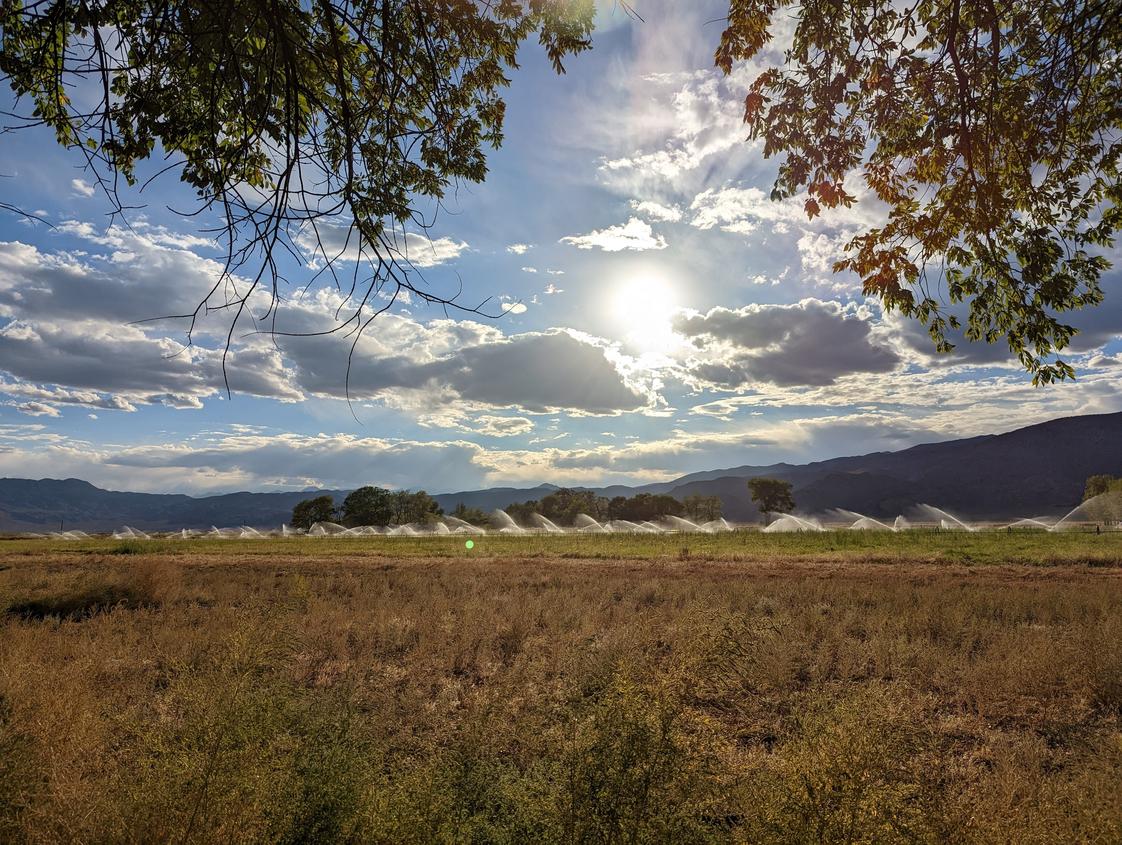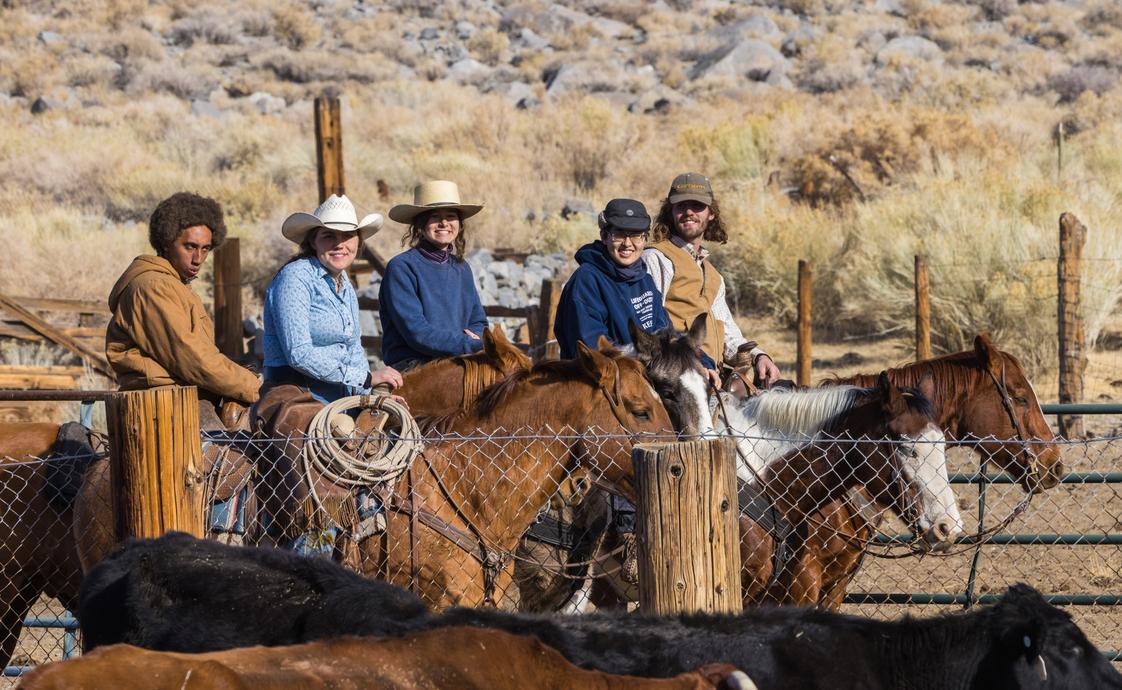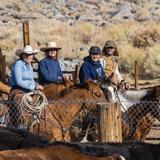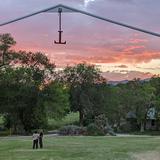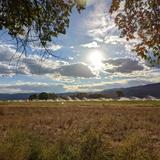- Deep Springs is a liberal arts college located on a self-sustaining cattle-ranch and alfalfa farm in California's High Desert. The 24-30 members of the student body form a close community engaged in an intense educational project delineated by what Deep Springs' founder, L. L. Nunn, termed the "three pillars": academics, labor and self-governance. The principle underlying the three pillars is that manual labor and political deliberation are necessary supplements to the liberal arts in the training of future servants to humanity. Students attend for two years (after which most transfer to a four-year institution) and receive a full room, board, and tuition scholarship valued at over $50,000 per year.
School Highlights
Deep Springs College serves 27 students (100% of students are full-time).
The college's student-teacher ratio of 5:1 is lower than the state community college average of 22:1.
Minority enrollment is 100% of the student body (majority Black and Hispanic), which is less than the state average of 66%.
Quick Facts (2026)
- Enrollment: 27 students
- Student-teacher ratio: 5:1
- Source: Verified school update
Top Rankings
Deep Springs College ranks among the top 20% of public schools in Nevada for:
Category
Attribute
School Overview
Deep Springs College
(NV) Community College Avg.
Carnegie Classification
Associate of Arts Colleges
Not applicable, not in Carnegie universe (not accredited or nondegree-granting)
Institution Level
At least 2 yrs but < 4 yrs
At least 2 but less than 4 years
Institution Control
Private, non-profit
Private for-profit
Total Faculty
n/a
90 staff
School Calendar
Student Body
The student population of Deep Springs College has stayed relatively flat over five years.
The Deep Springs College diversity score of 0.00 is less than the state average of 0.75. The school's diversity has declined by 100% over five years.
Total Enrollment
27 students
4,141 students
Student-Teacher Ratio
5:1
22:1
# Full-Time Students
27 students
820 students
# Part-Time Students
n/a
3,321 students
# Enrollment Undergraduate
n/a
396 students
# Full-Time Undergraduate Students
27 students
820 students
# Full-Time Graduate Students
n/a
14 students
# Part-Time Undergraduate Students
n/a
3,555 students
# Part-Time Graduate Students
n/a
16 students
Total Dormitory Capacity
n/a
100 students
% American Indian/Alaskan
n/a
1%
% Asian
n/a
9%
% Hispanic
n/a
34%
% Black
n/a
9%
% White
n/a
34%
% Hawaiian
n/a
2%
% Two or more races
n/a
7%
% Non Resident races
n/a
1%
% Unknown races
100%
3%
Diversity Score
n/a
0.75
College Completion Rate (Students who graduate in less than 4 years)
n/a
65%
College Completion Rate (Students who graduate in 4 years or more than 4 years)
n/a
34%
Tuition and Acceptance Rate
% Students Receiving Some Financial Aid
n/a
90%
Median Debt for Graduates
n/a
$9,500
Median Debt for Dropouts
n/a
$4,718
Acceptance Rate
n/a
90%
Source: 2023 (or latest year available) Integrated Postsecondary Education Data System (IPEDS) , School Administrators
School Notes
- Deep Springs offers only an Associate's Degree in the liberal arts. Deep Springers usually transfer after two years at the college to continue their education at a four-year institution. Over the long term, over two-thirds of our alumni have earned graduate degrees, with over half holding a doctorate (M.D., J.D., Ph.D., etc.) as their terminal degree. Courses at Deep Springs are intensive and interactive seminars. Classes range in size from four to ten, so every member must come prepared to contribute to the discussion.As a result, students devote a great deal of time and energy to their assignments, and discussions often achieve a depth uncommon at the undergraduate level. Deep Springs has a library of approximately 23,000 volumes, a modest periodicals subscription, and computer work stations with internet and e-mail access via satellite. Our facilities are ample for the needs of the academic program and include a music room, a piano room, a laboratory, a darkroom, a ceramics studio, a library, a smithy, an auto shop, a woodshop, a saddle and leatherworking shop, fifty square miles of desert ecology and geology, and three classrooms. Classes are sometimes also held in unconventional locations, like professors' homes or the irrigation ditch.
Frequently Asked Questions
What schools are Deep Springs College often compared to?
Deep Springs Collegeis often viewed alongside schools like College of Southern Nevada by visitors of our site.
What is Deep Springs College's ranking?
Deep Springs College ranks among the top 20% of community college in Nevada for: Average community college minority breakdown.
Recent Articles

Community College Policies and Financial Aid Guide 2026
A 2026 guide to community college policies and financial aid, including FAFSA updates, state aid, tuition rules, and smart planning tips.

Get Better Grades in Community College by Being Social (2026 Update)
Learn how being social in community college boosts grades, retention, and career success. Updated 2026 strategies for academic achievement.

Navigating Community College as an Adult Learner in 2026
A practical 2026 guide for adults returning to community college, covering admissions, financial aid, career planning, and flexible learning options.

